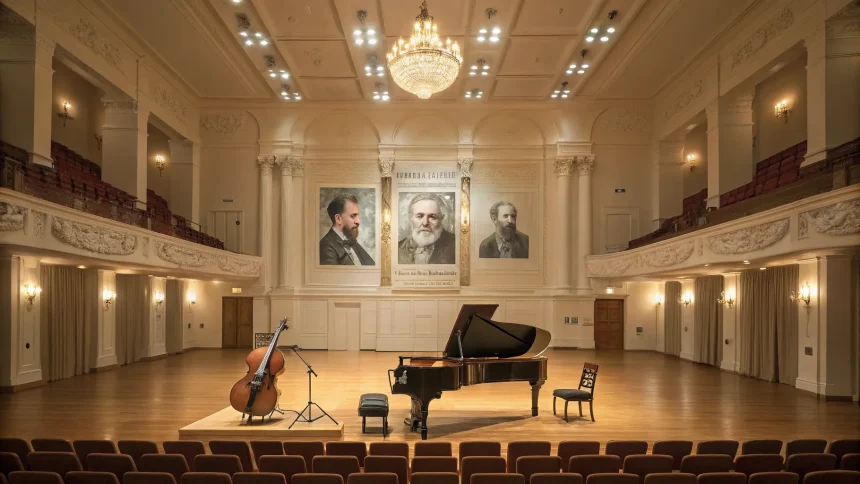A new production set to debut in London this November aims to shed light on the often-overlooked queer identities of several renowned classical composers. The show will examine the lives of Franz Schubert, Frédéric Chopin, Pyotr Ilyich Tchaikovsky, Ethel Smyth, Francis Poulenc, and Benjamin Britten—musical giants whose sexual orientations and gender identities have historically been minimized or erased.
“So little is known about the queer lives” of these composers, states the show’s synopsis, suggesting that the production will attempt to fill significant gaps in public understanding of these musical figures.
Reclaiming Hidden Histories
The November production represents part of a growing movement to reclaim and properly contextualize the lives of historical figures whose LGBTQ+ identities were often concealed due to societal pressures and legal restrictions of their times.
Tchaikovsky, for instance, lived in 19th century Russia where homosexuality was criminalized. His sexuality, while documented in private letters, was long downplayed in official biographies. Similarly, Benjamin Britten’s relationship with tenor Peter Pears spanned nearly four decades, yet was often characterized merely as a “musical partnership” in earlier historical accounts.
Ethel Smyth stands out in this lineup as a female composer who openly identified as a lesbian and was active in the women’s suffrage movement, adding both gender and sexual orientation dimensions to the conversation.
Musical Legacy Through a New Lens
The show appears poised to examine how these composers’ identities may have influenced their musical output. Francis Poulenc, for example, balanced his Catholic faith with his sexuality, which some music historians suggest created tension reflected in his compositions.
For Chopin and Schubert, the evidence of their sexual orientation remains more debated among historians, making their inclusion particularly interesting for audiences seeking to understand how scholars interpret historical documents and personal correspondence.
“So little is known about the queer lives” of these composers
Cultural Context and Reception
The London show arrives at a time of increased interest in examining classical music through contemporary social lenses. Recent years have seen similar productions and academic work focused on highlighting marginalized voices in classical music history.
The timing of the November premiere coincides with ongoing discussions about representation in classical music programming and education. Major orchestras and music institutions have been working to diversify their repertoire and acknowledge the full identities of composers whose works they perform.
For many music lovers, this reexamination offers a chance to connect with familiar compositions in new ways. Understanding the personal struggles and social contexts of these composers may provide fresh insights into works that have been performed for centuries.
Beyond Biography
While specific details about the format and approach of the show remain limited, similar productions have combined musical performances with dramatic readings, visual elements, and historical context.
The production will likely address several key questions:
- How did societal attitudes toward sexuality affect these composers’ personal and professional lives?
- What evidence exists regarding their sexual identities, and how has this evidence been interpreted over time?
- In what ways might their identities have influenced their musical compositions?
For London audiences, the November show promises to offer not just entertainment but education about classical music figures whose complete stories have rarely been told. By examining these composers through their “queer lives,” the production challenges traditional narratives and invites listeners to hear familiar music with fresh understanding.









